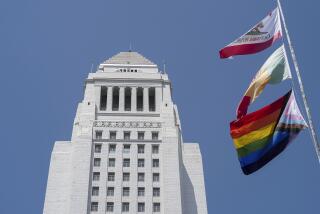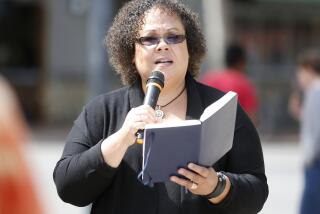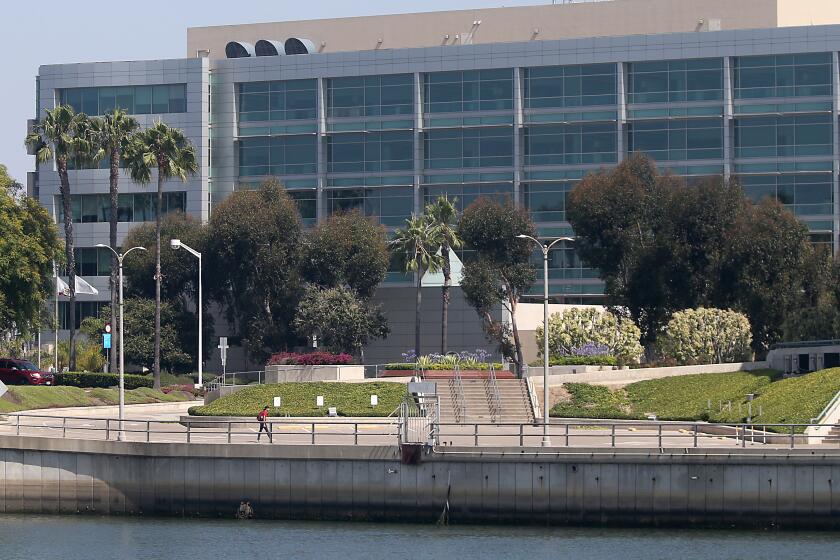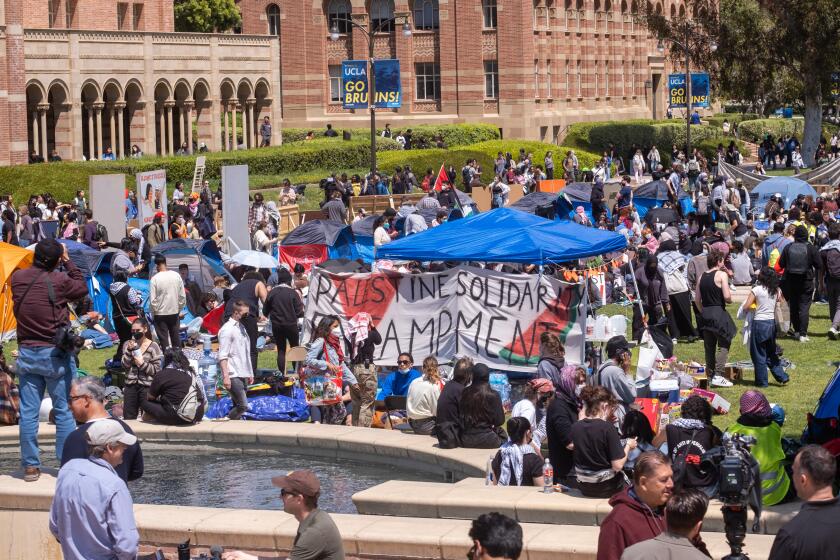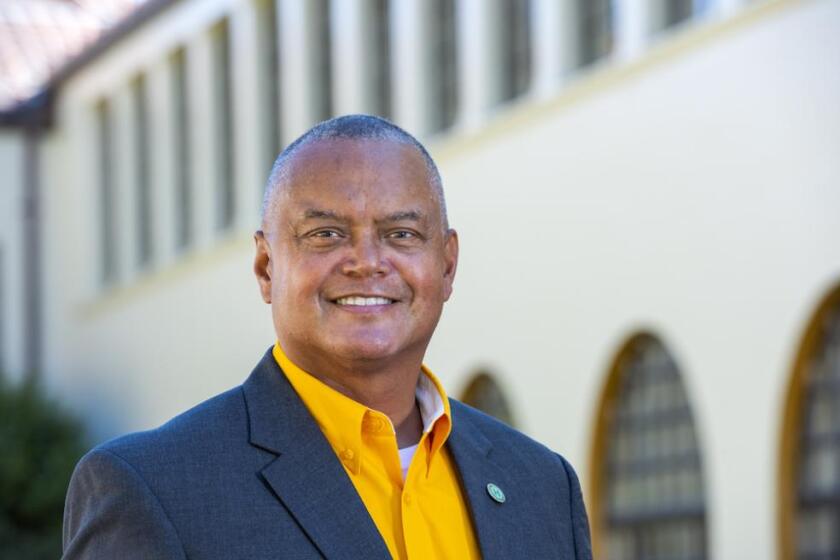Rebels with a cause: education
I met with seven unlikely California rebels this week on the campus of Cal State Fullerton.
All are Orange County residents. They commute from the likes of Huntington Beach and Yorba Linda. Two are business majors.
Cal State Fullerton is not Berkeley. It’s not where you go to be an agitator. But these are tough times. And the rebels of Fullerton say budget cuts and fee hikes forced their hand.
“I paid my tuition in full, and then they tacked on another $300 after I paid,” said Sean Washburn, 23, of Orange, who joined a sit-in outside the university president’s office last week.
Washburn and his fellow Fullerton protesters did not explicitly focus their demands on dollars. Instead, they asked Cal State Fullerton’s top administrator to accept a statement of basic truths which begins:
“We, the students…of California’s public schools, colleges and universities, call upon the people of the state to recommit and reinvest in public education as the principal foundation of a democratic society.”
The “Declaration to Defend Public Education” -- about 500 words long -- is a pithy and eloquent document. It calls public education “a sacred trust” that must be protected.
The students wanted Cal State’s president, Milton A. Gordon, to sign it. So they camped out next to his office for four days and three nights.
They knew getting Gordon’s signature would be a largely symbolic victory. But they saw it as the first step in a fight to keep the Cal State system from surrendering its mission of making a quality education available to all.
President Gordon at first demurred.
“The language was so non-threatening,” said David Inga, 21, a Santa Ana history student. “But he said it was too radical.”
What might be construed as radical? Maybe statements like this one: “The failure to support an accessible, fully funded public education system will condemn many Californians to perpetual poverty and second-class status.”
Or this one: “As Californians we expect … fair and equitable contracts that respect and value the work done by teachers, lecturers, professors … on all levels from preschool through university.”
The students did not arrive on campus burning to express these thoughts. Anger moved them to eloquence.
“I couldn’t get into classes, even as a grad student, and even with first pick,” said Jaime Wharton, 25, who is studying public history.
Chirag Bhakta, 23, told me he became a budget-cut protester two years ago. Some of his friends had occupied campus buildings, but their movement “fizzled out,” he said. It needed ideas.
A couple of campus groups began holding regular workshops on the budget. They soon decided they needed a statement of principles.
“We had a lot of brainstorming sessions,” said Carie Rael, a history major from Anaheim, who helped draft the statement, using several texts — including California’s 1960 “Master Plan for Higher Education” — as a guide.
“An educated workforce is essential to our prosperity,” the student declaration says. “Public education,” it adds, “is a public good that needs to be protected from … for-profit interests.”
“We decided to get thousands of people to sign it,” Rael said. “And then we thought, who more powerful to sign it than the president of the university?”
Cameron Mahdad, a 19-year-old business major, explained the logic: “A university president would be saying that something needs to change in the Cal State system.” That would place more pressure on Charles B. Reed, the system’s chancellor.
So the Fullerton students waited outside Gordon’s office, eating pizza — some of it sent by students at other Cal State campuses. To pass the time, they talked about Latin American politics and Nietzsche.
Eventually, the crowd grew to more than 100. And thousands signed the declaration.
Bryan Norton, 20, said he soon realized something about Cal State campuses’ general lack of such zeal. “That apathy is bred from ignorance and misinformation,” he said. Spread information around, and it disappears.
Gordon eventually signed the declaration, but only after deleting several statements, including those about fair contracts.
Now the original declaration is spreading to other campuses.
Obviously, words alone can’t turn the tide. But if the students at Cal State Fullerton can force the most powerful man on campus to sign a document he didn’t write, then maybe more is possible.
Fullerton’s statement made me think of a much more famous one, written in 1962, which begins:
“We are the people of this generation, bred in at least modest comfort, housed now in universities, looking uncomfortably to the world we inherit.”
Tom Hayden helped write those words as an activist for the Students for a Democratic Society. In the years that followed, student protest spread across the United States.
I sent Hayden the “Declaration to Defend Public Education,” which he called “a student cry against the shadow of debt over their future.”
His generation, he said, fought to open the doors of public education to everyone. “It’s no accident,” he said, that education is becoming unaffordable now that the population walking through those doors is so diverse.
The students I met in Fullerton sense this truth.
“People say we’re just selfish students,” Wharton said. “But I’m graduating soon, and this is not going to benefit me personally.”
It’s California’s future she’s worried about. And so am I. But these young voices, and their hunger to bring meaning to words like justice, do provide some comfort.
More to Read
Start your day right
Sign up for Essential California for news, features and recommendations from the L.A. Times and beyond in your inbox six days a week.
You may occasionally receive promotional content from the Los Angeles Times.

